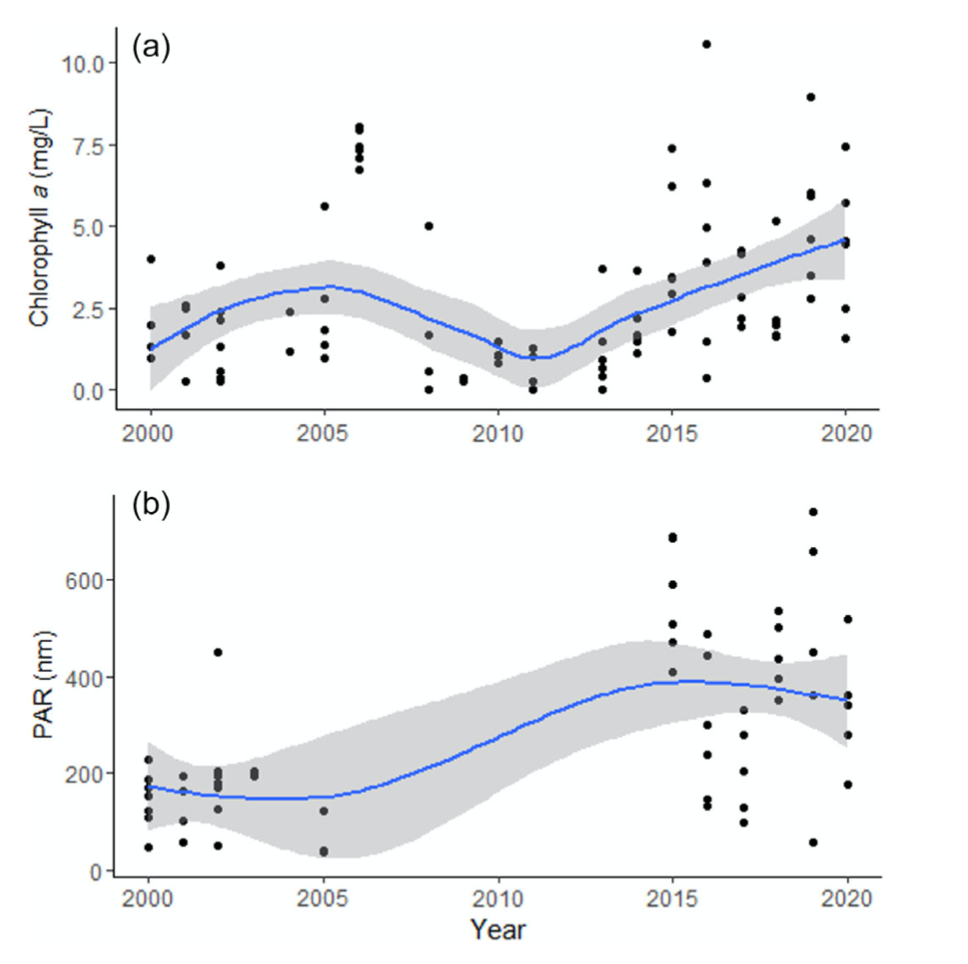Richard B. Primack
“Those who are ready to go are already invited.” Henry David Thoreau in his Journal.
In a recent paper in Ecosphere, scientists describe how the U.S. Long Term Ecological Research (LTER) Network can be used to investigate ways in which ecosystems and ecosystem processes might be affected by the anthropause, the reduction in human activity associated with the COVID pandemic in 2020 and 2021.
Long-term research from high-latitude/altitude locations (e.g., Niwot Ridge, North Temperate Lakes, Bonanza Creek, and Arctic LTER sites) shows that large between-year variability and underlying long-term trends prevent the early detection of COVID-related effects on phenology, gross primary production, and other ecosystem attributes.
 |
| Figure 1. Chlorophyll content and Photosynthetically Active Radiation (PAR) did not change in a lake at Niwot Ridge during the 2020 pandemic. |
Research at the Georgia Coastal Ecosystems LTER reveals that increased home septic system use and agricultural waste (unharvested and decaying crops) likely increased nutrients in estuaries, resulting in rapid green-up of marsh vegetation.
 |
| Figure 2. The Enhanced vegetation index (EVI) increased in Georgia coastal marshes during the 2020 pandemic. |
At three LTER aquatic and marine sites (1) the Santa Barbara Coastal LTER in southern California, (2) the North Temperate Lakes LTER in Wisconsin, and (3) the Moorea Coral Reef LTER site in the central South Pacific Ocean, the different spatial scales of human behavior and the varying connectivity of animal populations prevent easy generalizations from being made about the ecosystem effects of the pandemic.
 |
| Figure 3. Fisheries practices and animal populations are striking different at contrasting LTER sites, obscuring the effects of the pandemic. |
These case studies show how long-term ecosystem studies can potentially be used to distinguish the short-term impacts of the pandemic from inter-annual variation and long-term changes in ecosystem pro-cesses.
Published in Ecosphere journal.
DOI: https://doi.org/10.1002/ecs2.401
No comments:
Post a Comment